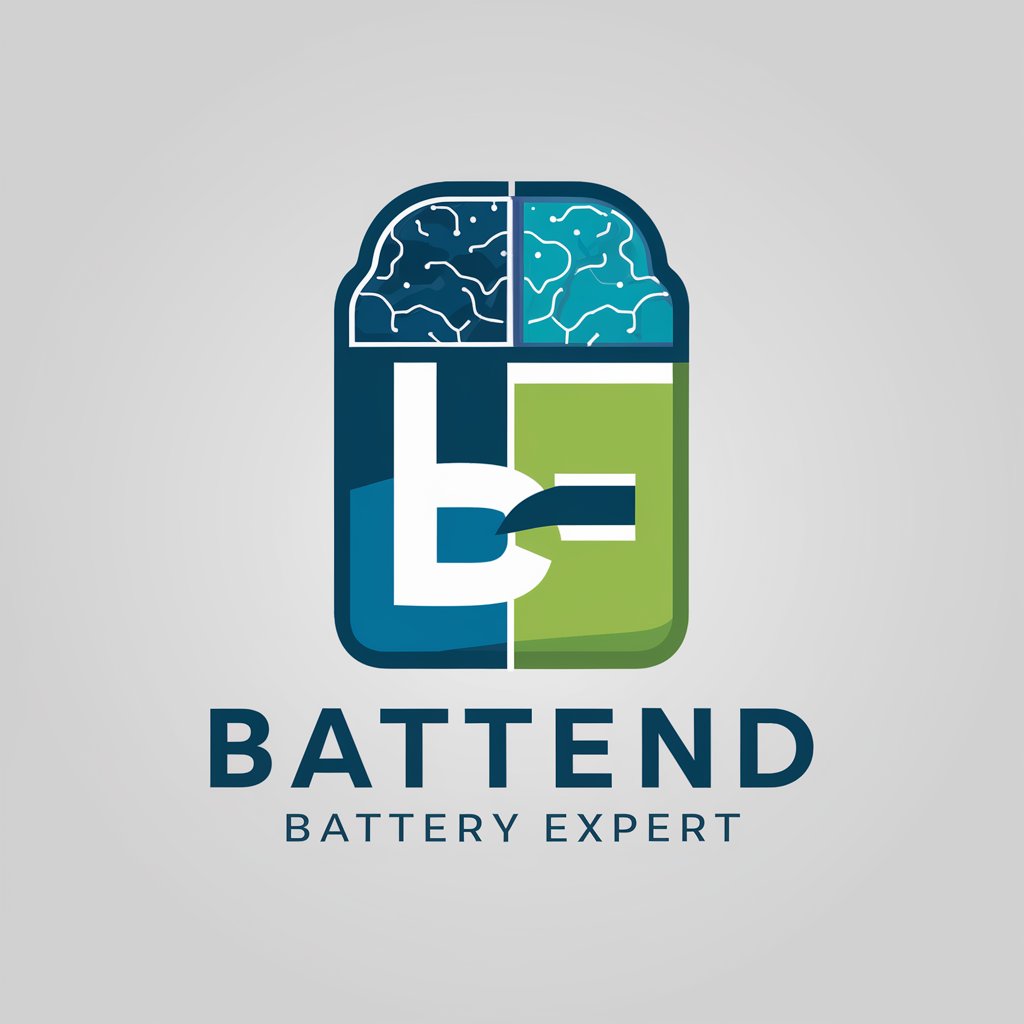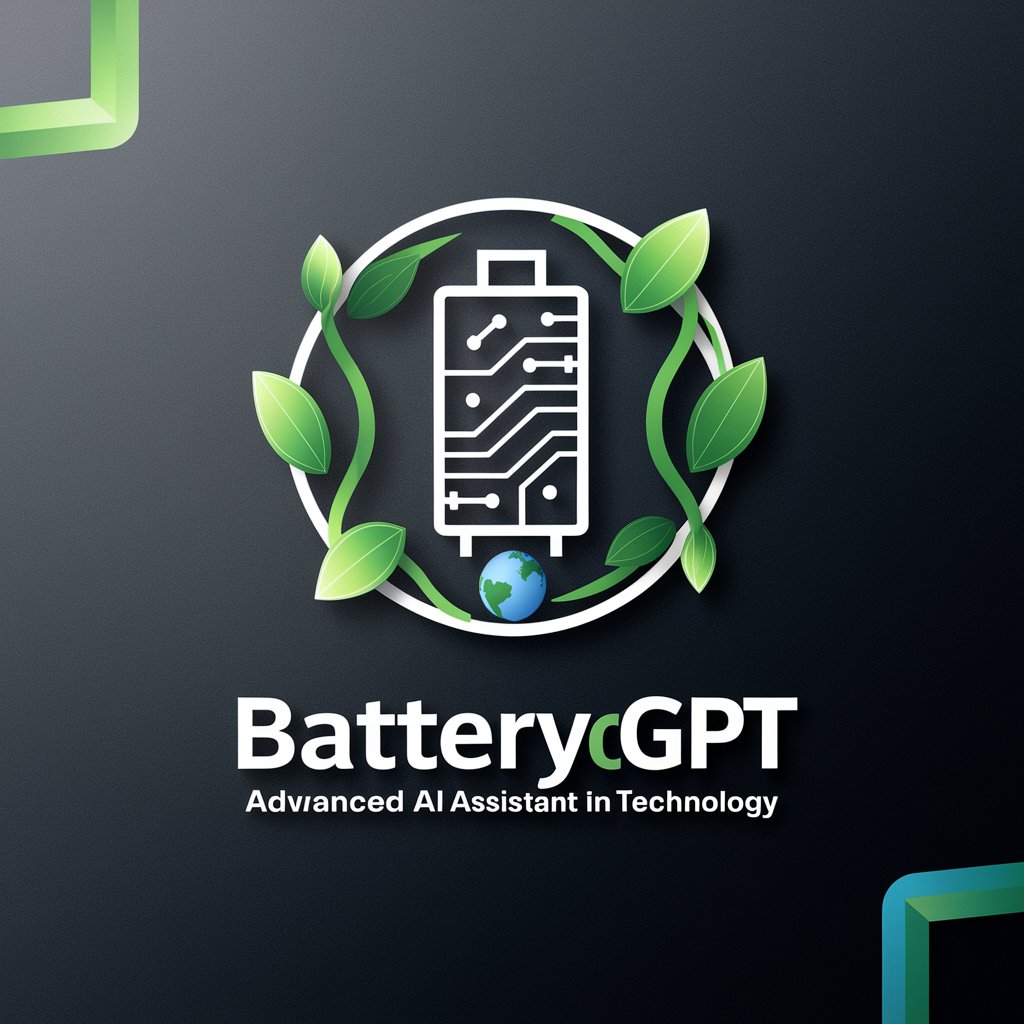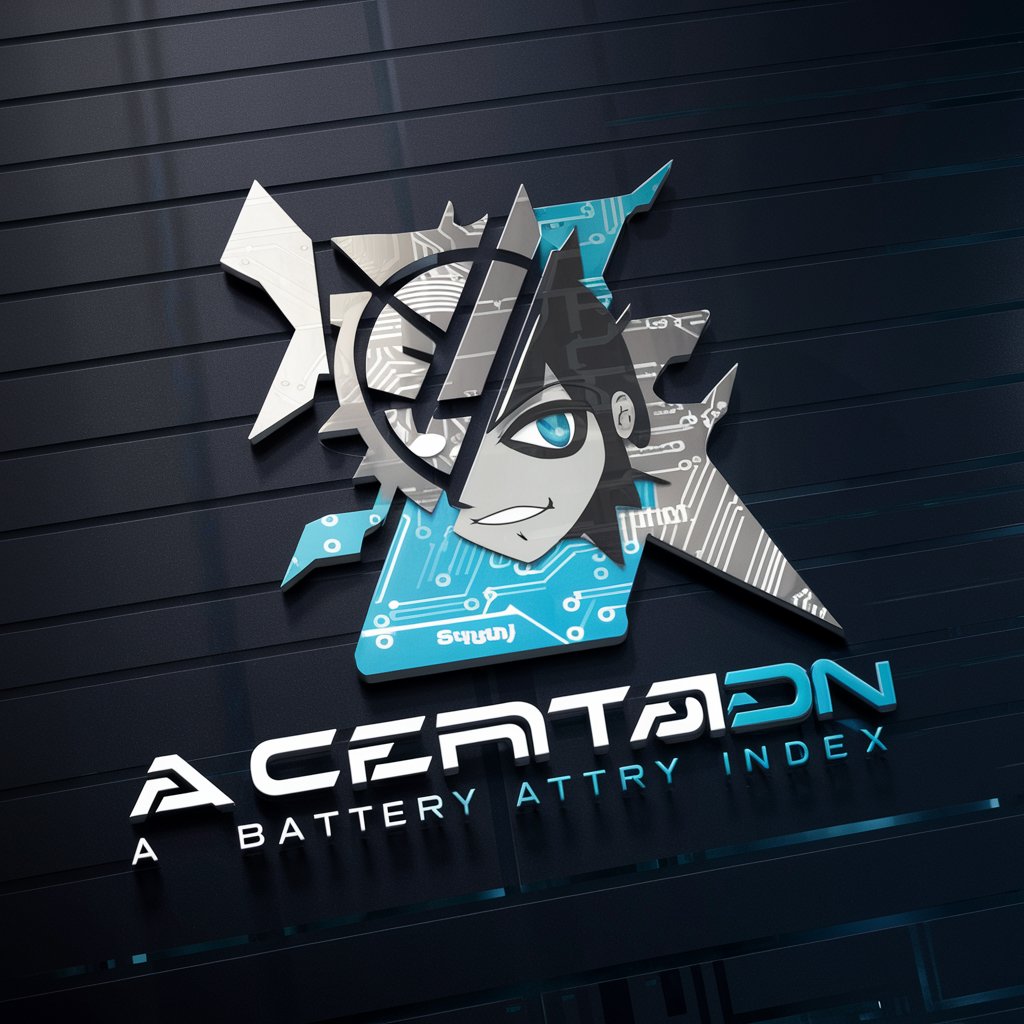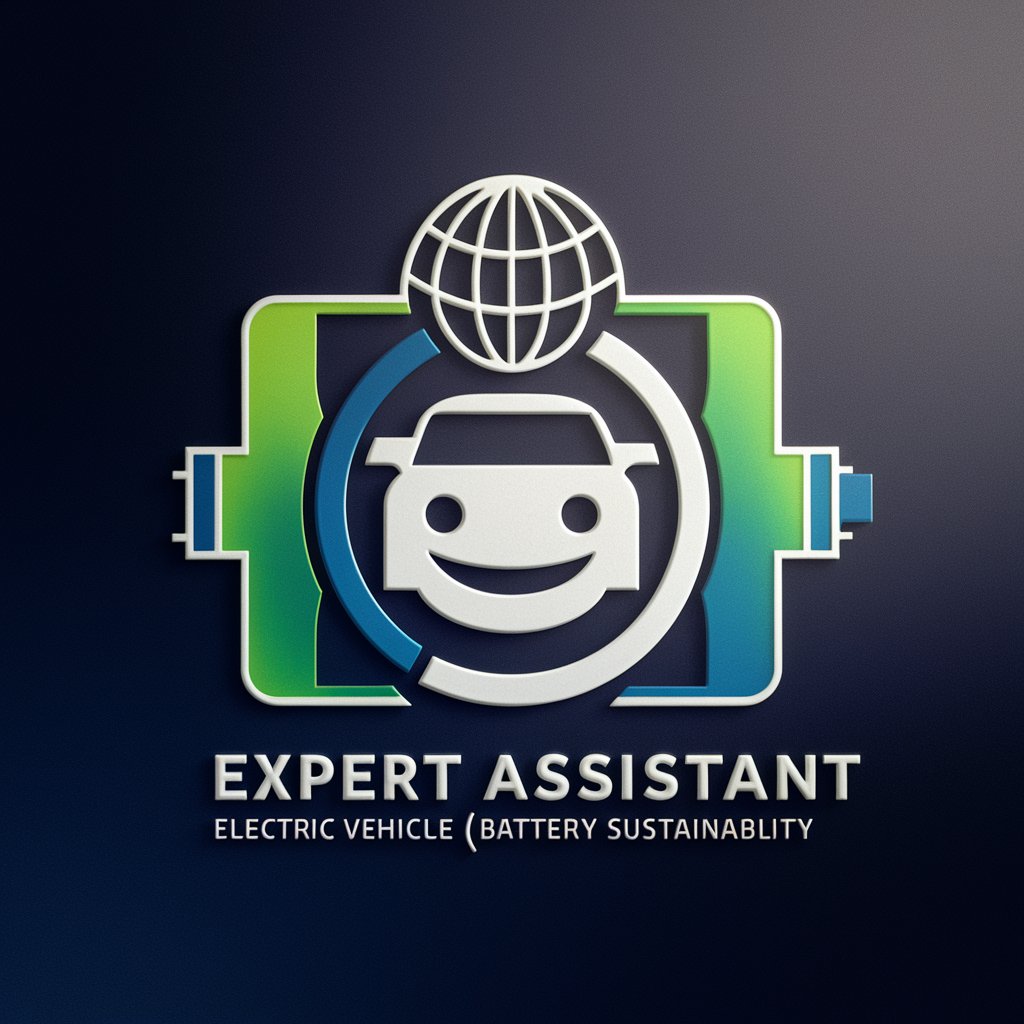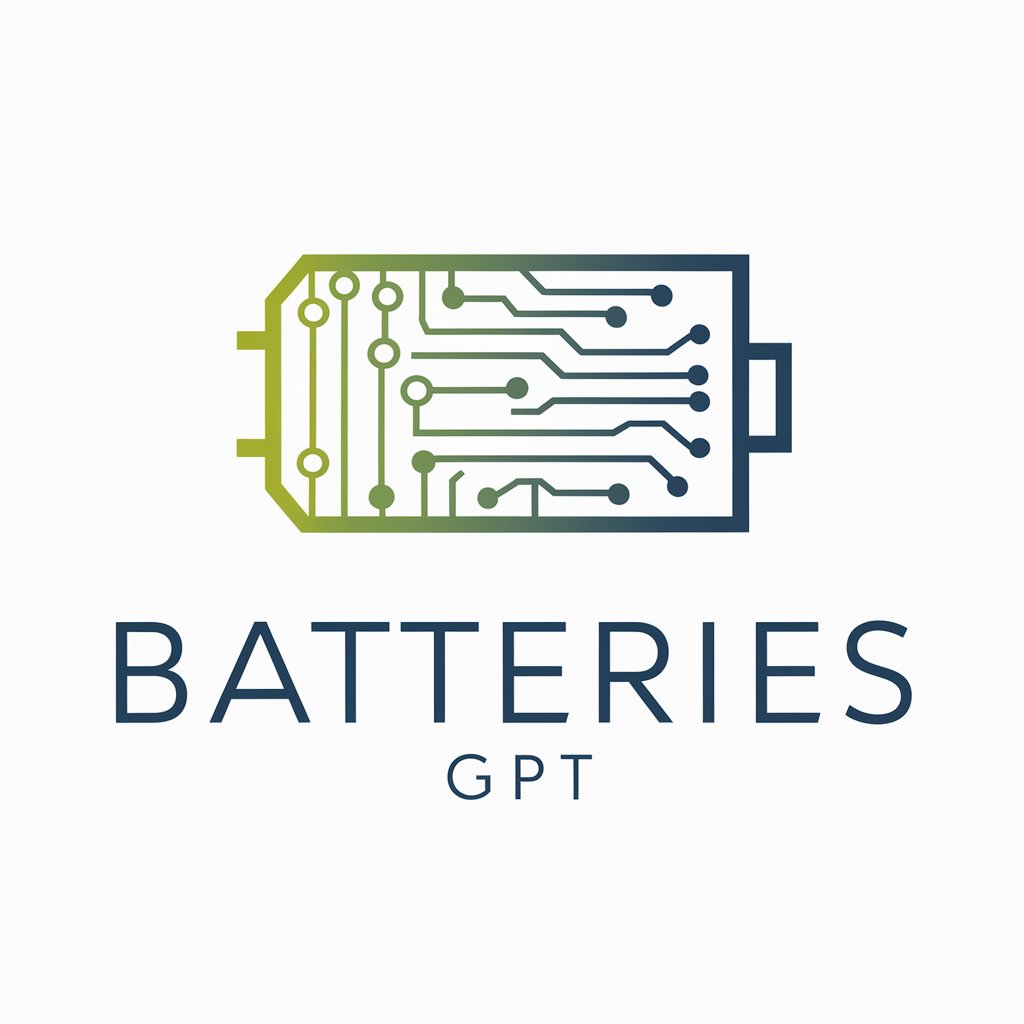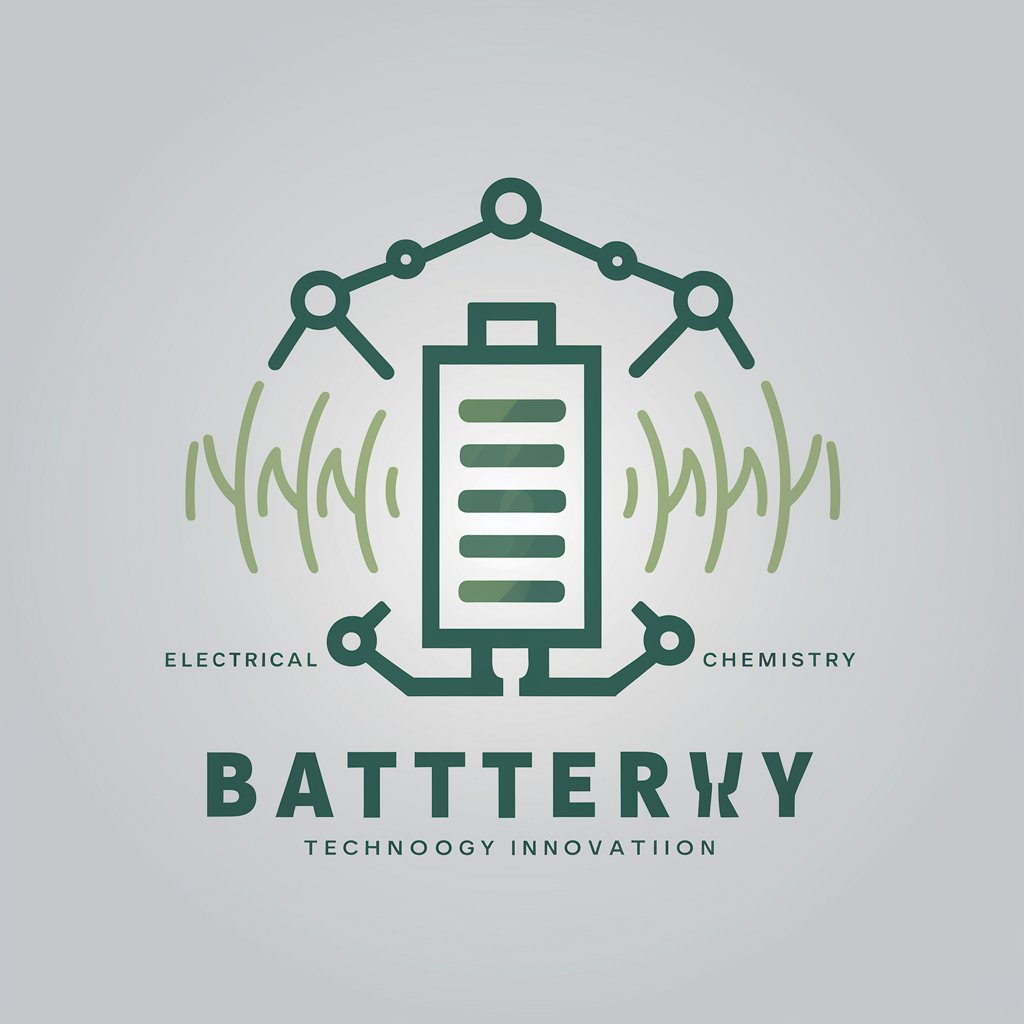
Battery - Battery Info & Analysis
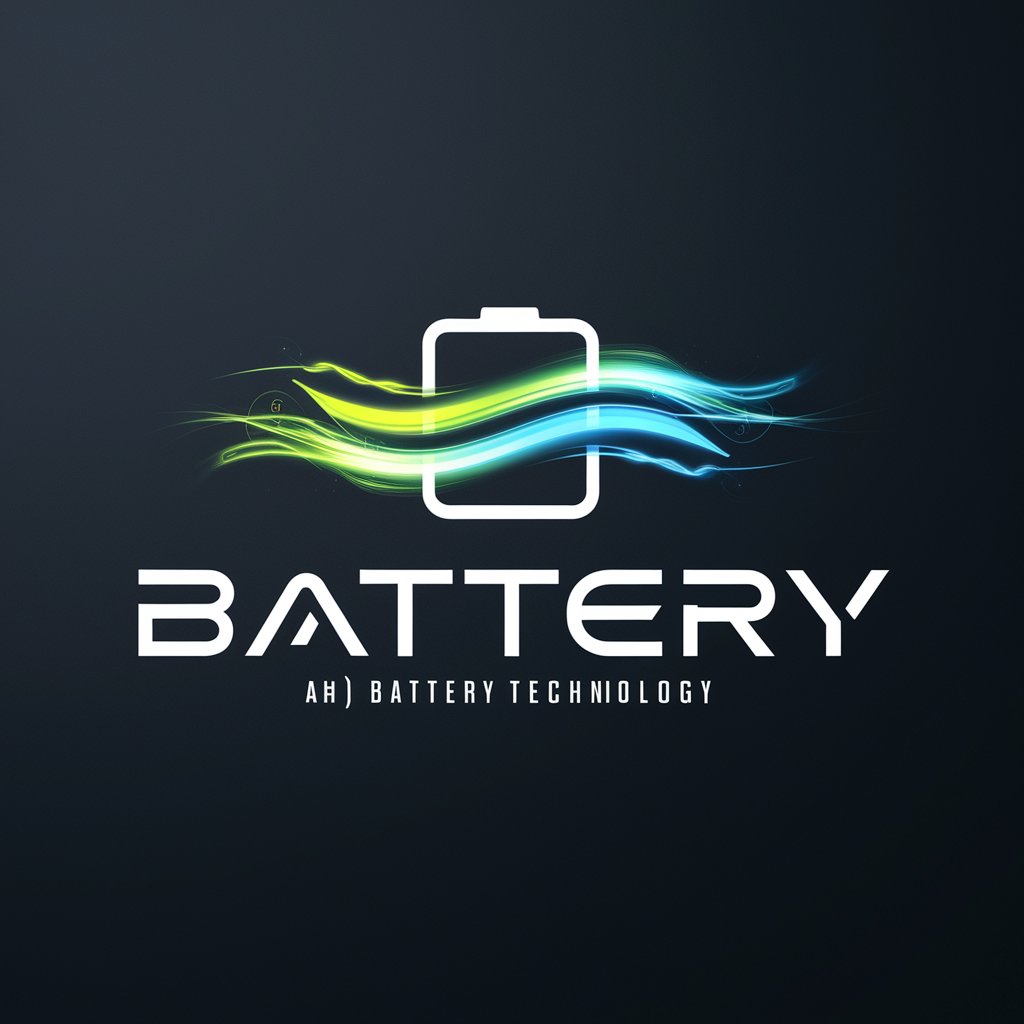
Hello! Need battery insights? I'm here to help. Stay charged!
Empowering Insights with AI
Can you explain the differences between lithium-ion and nickel-metal hydride batteries?
What are the latest advancements in battery technology?
How do solid-state batteries improve over traditional batteries?
What factors affect the lifespan of a rechargeable battery?
Get Embed Code
Introduction to Battery
Battery is an AI assistant designed to provide comprehensive information about battery technology. It focuses on various types of batteries, their applications, and technical details. The primary purpose of Battery is to answer questions related to battery technology and guide users through complex topics, ranging from the basics to advanced concepts. For example, if you're curious about lithium-ion batteries and their applications in electric vehicles, Battery can explain the technology, its advantages, and safety considerations. Powered by ChatGPT-4o。

Main Functions of Battery
Technical Explanations
Example
Battery can explain the differences between various battery chemistries, like lithium-ion, nickel-metal hydride, and lead-acid.
Scenario
If you're an engineering student researching battery technology for a project, Battery can provide detailed information on battery types and their use cases.
Application Guidance
Example
Battery can suggest the best battery type for a specific application, such as home energy storage or portable electronics.
Scenario
Suppose you're considering installing a solar power system at home and need advice on which battery is best for energy storage. Battery can offer guidance on suitable options.
Safety and Maintenance Tips
Example
Battery provides safety advice for handling batteries and tips for extending their lifespan.
Scenario
If you're working with electric vehicles and need safety information, Battery can guide you on proper charging practices and precautions.
Ideal Users of Battery
Students and Researchers
Battery is ideal for students and researchers who need in-depth knowledge of battery technology. They can use Battery to understand complex concepts and explore new battery technologies.
Engineers and Technicians
Battery caters to engineers and technicians in industries such as automotive, electronics, and renewable energy. It helps them find solutions to technical challenges and learn about industry trends.
Homeowners and Enthusiasts
Battery is also useful for homeowners and technology enthusiasts interested in energy storage solutions, electric vehicles, or DIY projects. It provides practical advice and guidance on battery-related topics.

How to Use Battery
Start Your Trial
Visit yeschat.ai to begin using Battery without any login or subscription requirements such as ChatGPT Plus.
Select Your Focus
Choose a specific area of battery technology or application you need information about to tailor the tool's output to your needs.
Input Your Query
Type your question or topic related to batteries directly into the chat interface and submit it.
Review Responses
Analyze the detailed, accurate responses provided by Battery, noting any recommendations or data points.
Iterate as Needed
Adjust your questions based on previous answers to dive deeper into the subject or clarify any uncertainties.
Try other advanced and practical GPTs
Battery Forecaster
Predictive Power for Your Battery Life
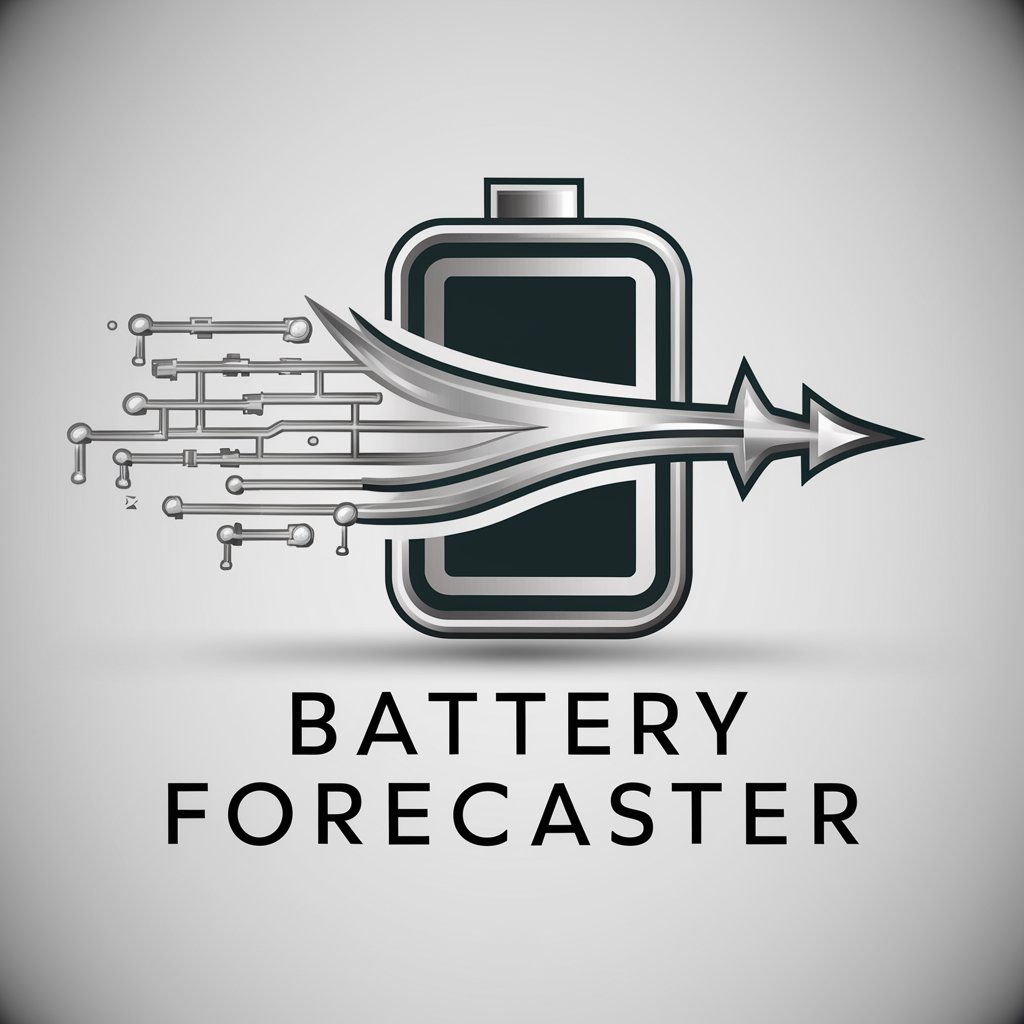
Wedding AI
Your AI-Powered Wedding Planner

Wedding Bands
Crafting Your Love Story with AI-Powered Advice

Wedding Wiz
Empowering Your Dream Indian Wedding with AI

Wedding Whisperer
Your AI-powered wedding planner.

Wedding Planner
Crafting Your Dream Wedding with AI

Battery Buddy
Empowering Electric Mobility with AI

EV Battery Advisor
Optimize Your EV Battery with AI
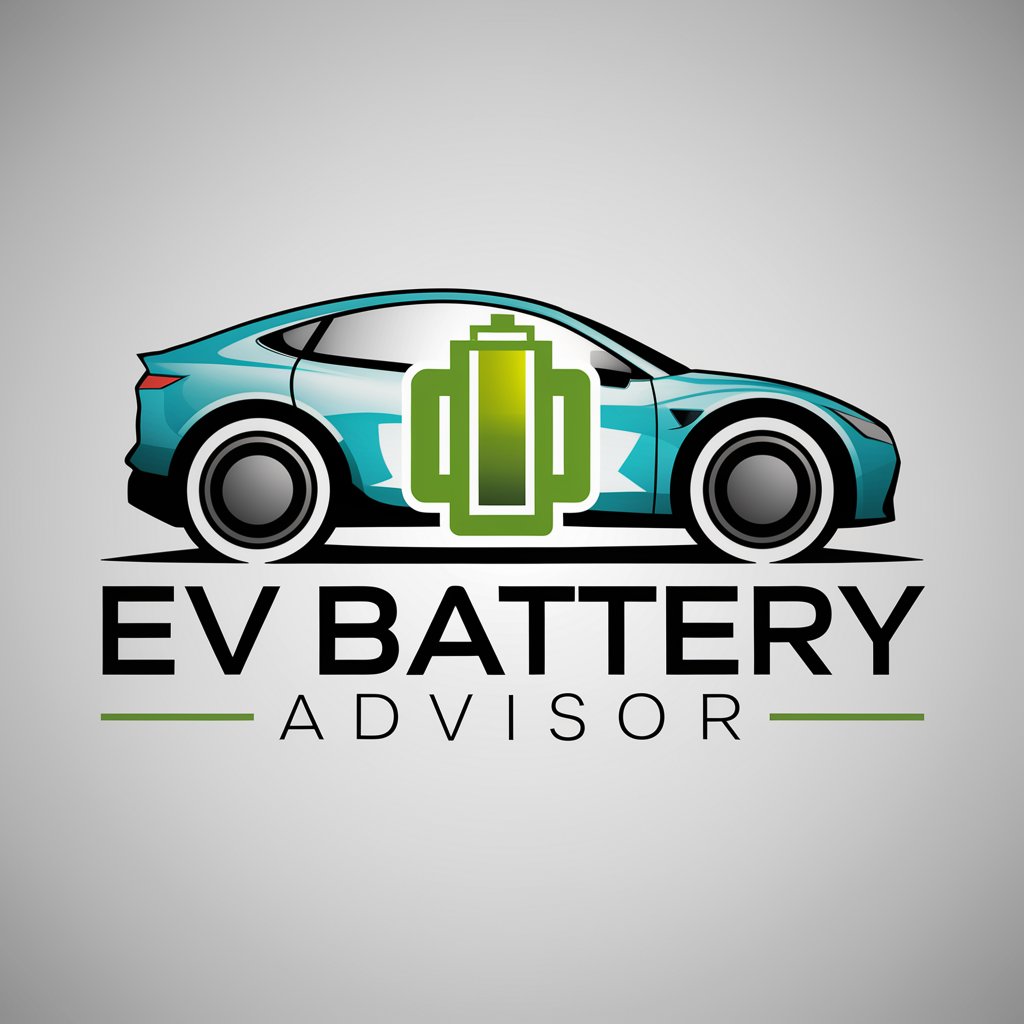
Car Battery Care Guide
Empowering car care with AI.

Battery Guru
Powering Innovations with AI-Driven Battery Expertise
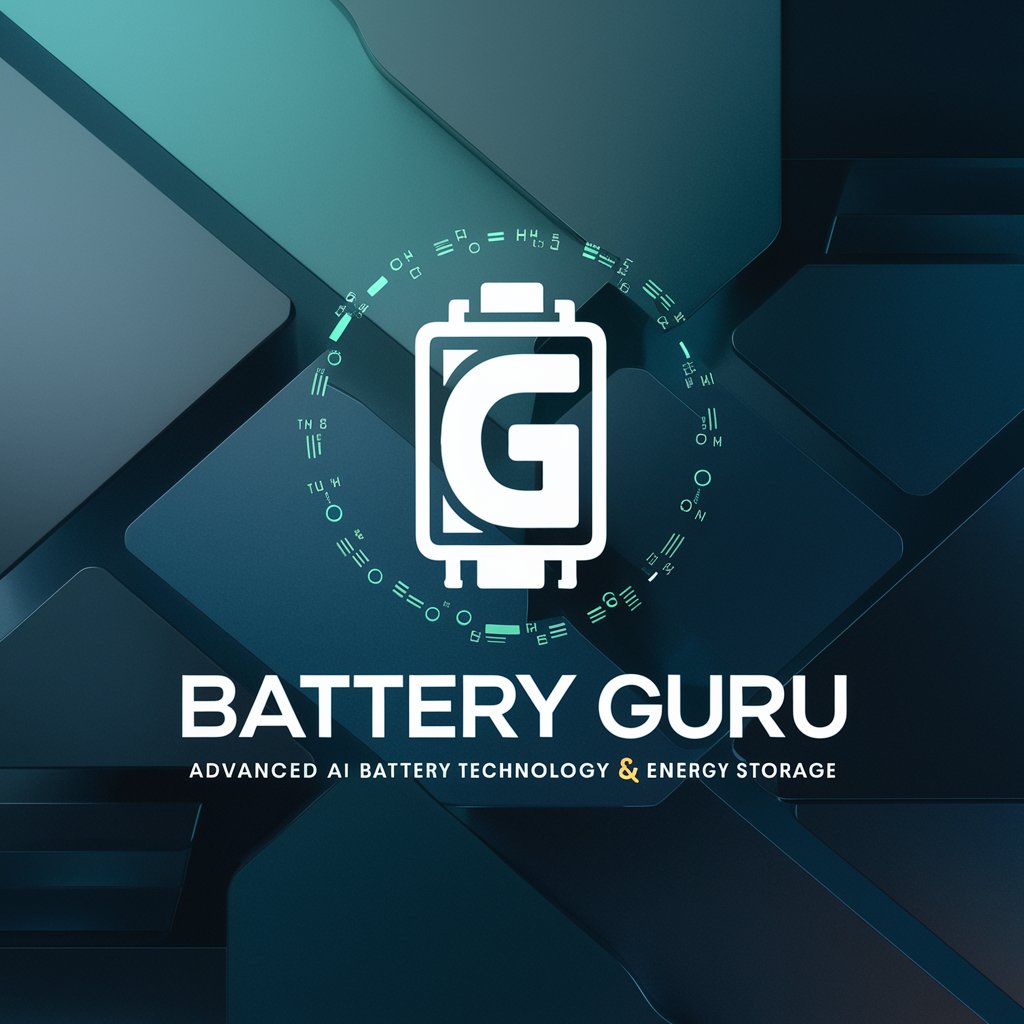
Battery Brainstormer
Powering Battery Innovation with AI
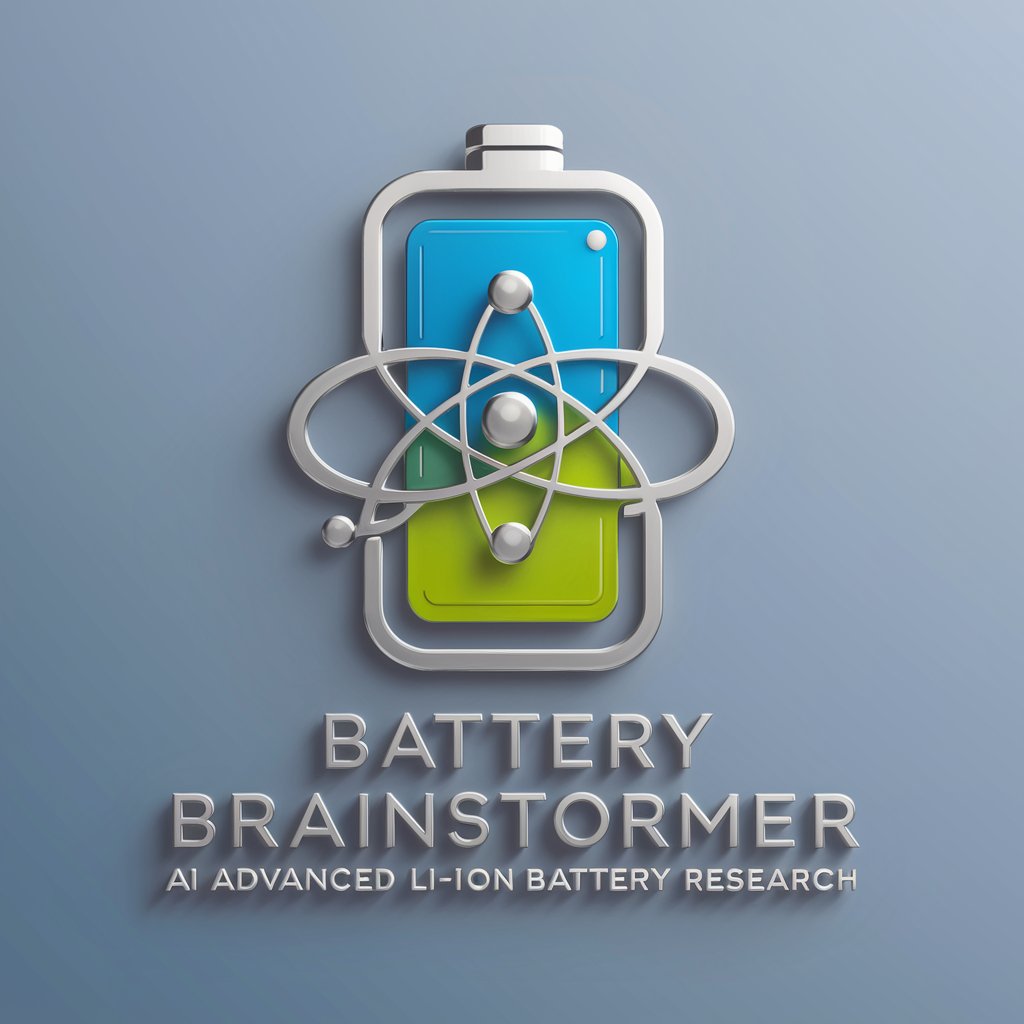
Apple Battery Advisor
Optimize your Apple device battery life with AI-powered guidance.

Frequently Asked Questions About Battery
What is the principle of operation of lithium-ion batteries?
Lithium-ion batteries operate by moving lithium ions between the anode and cathode. The ions move from the anode to the cathode during discharge and back when charging, facilitated by an electrolyte.
Can Battery provide information on the environmental impact of batteries?
Yes, Battery can offer detailed insights into the environmental aspects of batteries, including resource extraction, lifecycle emissions, recycling processes, and sustainability practices.
How does Battery stay updated on the latest battery technology?
Battery utilizes continuously updated databases and access to current scientific literature and industry reports to provide the most accurate and up-to-date information.
Is Battery capable of comparing different battery types?
Yes, Battery can compare various battery types such as lithium-ion, lead-acid, and nickel-metal hydride, focusing on aspects like energy density, longevity, cost, and environmental footprint.
How can Battery assist in battery management systems?
Battery provides insights on optimizing battery management systems for efficiency and longevity, including charge regulation, temperature control, and health monitoring techniques.
